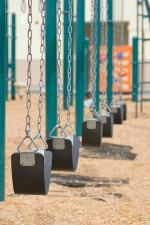 We know you love your kids (now, hopefully, out of the house), but there must have been a few times during those toddler tantrums and teenager drama years that you wondered why you had kids to begin with. Well, we’ve finally got that answer!
We know you love your kids (now, hopefully, out of the house), but there must have been a few times during those toddler tantrums and teenager drama years that you wondered why you had kids to begin with. Well, we’ve finally got that answer!
A new study from Denmark, published in the Journal of Epidemiology and Community Health, actually found that couples with children live longer than couples without children. According to their research, the premature death rate for childless couples was actually two to four times higher than couples who had children.
The study analyzed about 21,000 couples during 1994 to 2008, who had planned to have children via in vitro fertilization. Longevity improved the most for women who had children—they lived four times longer if they gave birth to their own children, and twice as long if they adopted children. Longevity improved for men as well: they lived twice as long, whether they had biological or adopted children.
I spoke to the lead researcher, Esben Agerbo, to find out why—perhaps contrary to public opinion—couples with children actually live longer.
“It is speculative, but perhaps parents change behavior to live a healthy lifestyle,” he says. “They might eat healthier, drink less, and are more prone to give up smoking.”
MORE: How your finances impact longevity
According to him, it’s all about behavior. “The risk of dying due to an accident is also higher among the childless, which could point to a more risky lifestyle, like people with kids push the pram around while the childless drive a fast car,” he says.
His team is not the only one to make the connection between longevity and having children. These findings correlate with an earlier study from Stanford University, which found that men over the age of 50 who had children had a lower risk of dying from heart disease than men without children.
So while they may cause you lots of stress at times, and give your wallet a run for its money—literally—it seems that having kids might have made you better off, after all.
Source(s) for Today’s Article:
Agerbo, E., et al., “Childlessness, parental mortality and psychiatric illness: a natural experiment based on in vitro fertility treatment and adoption,” Journal of Epidemiology & Community Health. December 2012.
